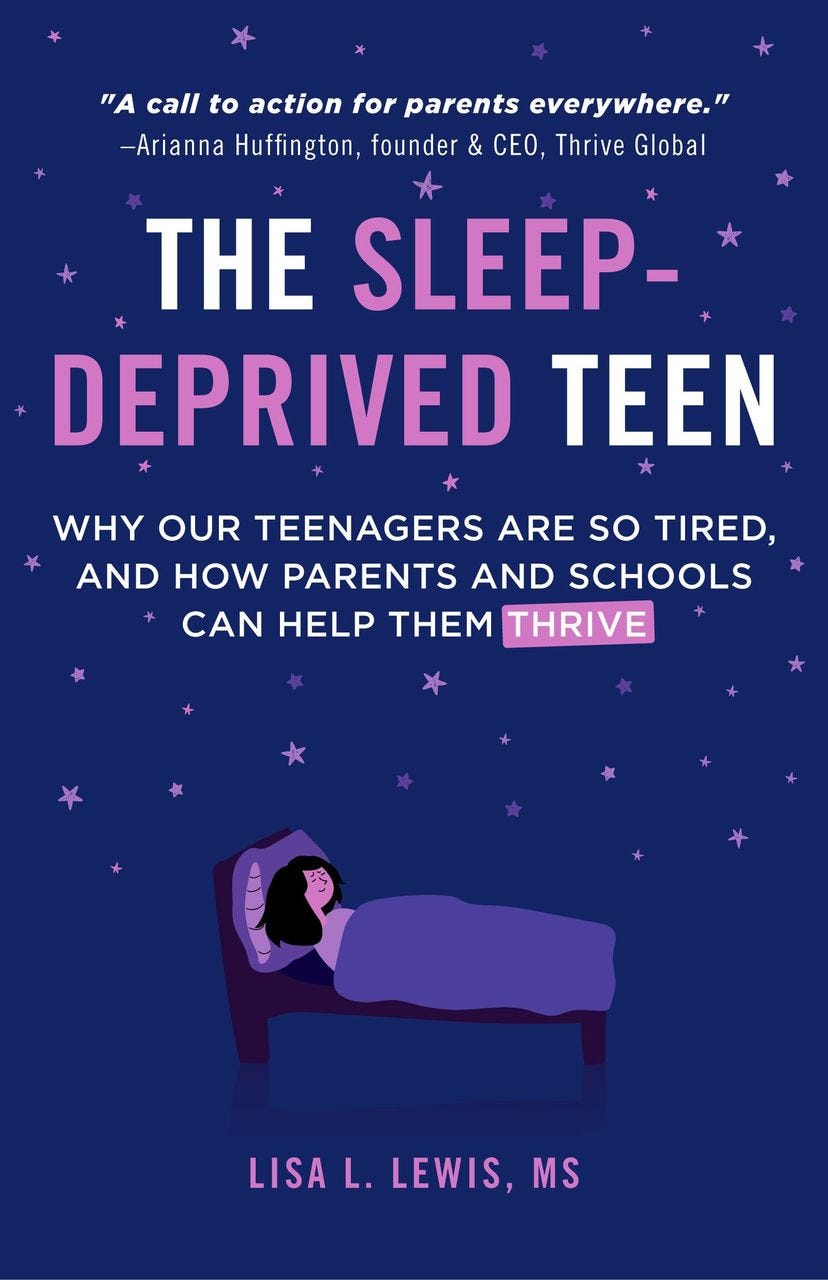Teen Sleep Is a Public Health Emergency
Four-fifths of teens don't get enough shut-eye. Here's why that matters, and what parents — and schools — should be doing.
This fall, I’m going to have to start putting my 11-year-old on the school bus at 6:50am, and I can’t tell you how much I’m dreading it. It’s been hard enough this year getting him out the door at 8:15, and I know that with every passing year, my son’s biological clock is going to shift to make early rising even harder.
Still, I never thought that deeply about the long-term public health ramifications of early school start times until I read Lisa L. Lewis’s new book — which is OUT TODAY! — called The Sleep-Deprived Teen. Lisa, a fellow parenting journalist, was instrumental in passing the new California law that goes into effect next month stipulating later school start times, and I hope that it is the start of a nationwide trend. Teens who are forced to wake up early don’t learn as much, are more likely to be depressed and suicidal, and engage in more risky behaviors (including substance use) compared with teens who get enough sleep. There are important equity implications, too. Yes, school start time shifts require some logistical changes, but they are absolutely doable, and “but sports!” is not a valid rebuttal.
I’m thrilled to run a Q&A today with Lisa about teen sleep and why we all need to advocate for later school start times, but there’s far more in the book, which I strongly encourage you to read. Teen sleep — or lack thereof — is a hugely important issue that can affect kids for the rest of their lives.
What inspired you to write The Sleep-Deprived Teen?





